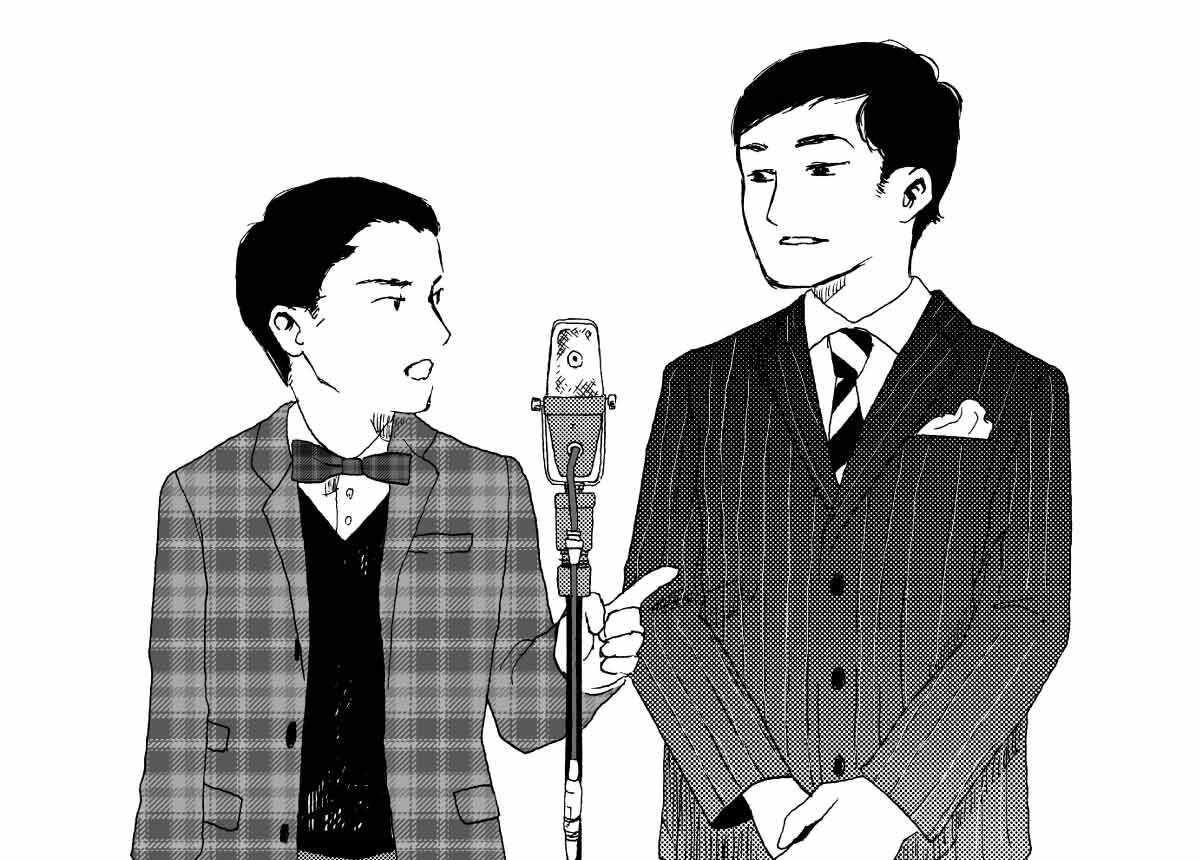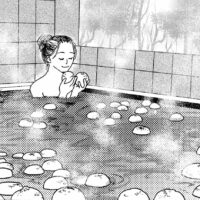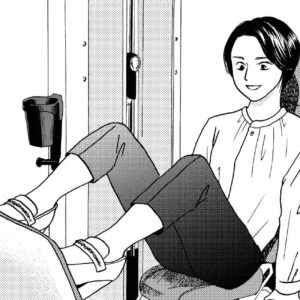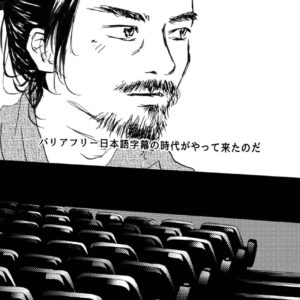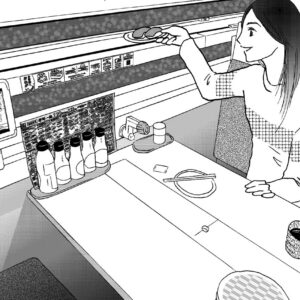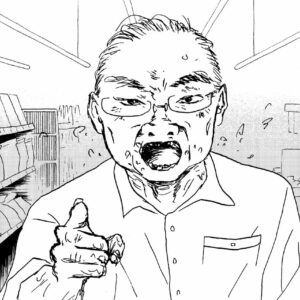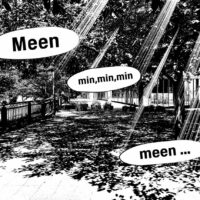Manzai is a unique Japanese form of entertainment. It is a performance in which there is only a stand microphone on the stage, and two people make the audience laugh only with the flow of their own conversation. In standup comedy, one person speaks to the audience, whereas in Manzai, the conversation proceeds between two people on stage. The performer assumes the role of either a “funny” man(BOKE), who tells jokes and off-target statements or a “serious” man(TSUKKOMI), who points out mistakes and misalignments. The performances are basically based on simple conversations in which the performers talk about themselves instead of acting, and the audience like listens to interesting conversations between close friends. In Manzai the performers are free to do everything as long as it is a dialogue between people on stage, then it is possible to deal with a wide range of subjects, including daily life, popular culture, and political economy.
This culture developed around 1900 and continues to evolve today. The M-1 Grand Prix, a Manzai contest modeled after a martial arts match in which the “funniest Manzai performer wins,” began in 2001. 10 pairs of Manzai perform their tricks one pair at a time, and the winner is the one with the highest score from the current Manzai judges. December is the season for this competition. In this highly flexible performance, the annual competition reflects the social conditions well.
On December 18, the 18th M-1 Grand Prix was held, and the duo “Westland” won. The basis of Westland’s performance is “disrespect.” Westland gave a trash talk that was almost their personal feelings about actors, models, pop idols, YouTubers, comedians, and their fans. And they made the audience laugh with their bad-mouth. One of the judges commented, “Recently, compliance has been enforced, making it difficult for comedians to say what they want to say. I commended them for opening a gap in this tight situation.”
Last year’s winners were a pair of 50-year-old uncles. The organizers have the idea that if you have been a comedian for 10 years and are not recognized by the public, give up, so the rules of this competition state that the contestants can only compete for up to 10 years of performance experience. So the contestants are young people in their 20s and 30s. In general, we know that “there will come a time when you have to give up on your dreams,” but the winner, who started in their 40s, proved that “you can still do interesting things in middle age.”
Laughter in Japan is about defying popular perception and betraying the expectations that people think will happen next. I love Japanese comedy.



